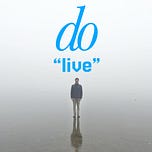Hey, everyone. Thanks for continuing to subscribe, read, listen to this newsletter!
It's 2025. Today, the day that I'm recording this, the Oscar nominations have come out and so I wanted use them as a jumping off point to talk about something that I've been thinking about since I watched this movie that was nominated, A Complete Unknown, about Bob Dylan.
I was never really a Dylan-head. I never had a Bob Dylan phase because I listened to some of his most ubiquitous songs, the early folk ones, and honestly, they are just too triggering. I find them pretty emotional and nostalgic and his voice is particularly tear-inducing, I feel. And so I never really got into him.
But I definitely have, since the movie, come to dive in a bit more.
I've heard from some people that they didn't love the movie that much because they came away not really knowing who Dylan is. I have been thinking about what I “got” from the movie and what the movie was trying to say.
At first, in watching it, there's an early line where they quote Woody Guthrie, a folk artist that inspired Bob Dylan greatly. Someone quotes him and says, something to the effect of, “a great song can change the world.”
It's a movie [that] feels very much like a concert. Like a “best of” in terms of early material, because you're really hearing full songs. Timothee Chalamet is singing most of the song of these several picks of songs.
If I was looking at it on the script, I would think this is kind of corny, this idea of just him coming up with the songs or performing the songs and everyone's in awe of him coming up with them. But when I watched the movie, I did feel that that is probably what would have happened, because the songs are great songs. They would elicit that kind of reaction. So it felt completely true to me.
When I originally watched the movie, I kind of walked away the first week of thinking about it. I thought about that line (“a great song can change the world”) as a thesis of what the movie was, just the power of songs. And to really sit in their power and showcase how powerful these early songs were.
But then I was thinking about how the movie ended. And if you're a fan of Dylan, or you've seen it, you know that he made the decision to go electric and started having a rockband energy to his music.
At least in the movie, it is presented as though it was a shock and a disappointment to many people. Now that I’ve dove into Dylan a bit more, I kind of understand that that is sort of his thing in the sense of: he makes artistic choices and doesn't care who follows him with those choices.
I was actually having a conversation with a friend of mine about songwriting and we were talking about: For some artists, and I would say Bob Dylan is included in this, and this is what the ending of the movie was about— I should say the whole movie was really about this, but you didn't really get that until quite the end— but for some artists, songwriting is like breathing.
I would say Prince is another example of this, these artists that have just insane amounts of output. Some of it good, some of it bad. They have just such a wide output that some people gravitate towards certain releases more than others.
In thinking about the movie, what is interesting about the story is that, and I don't know if this was intended or I'm being generous about my understanding of the movie, but my takeaway is that for Bob Dylan, songwriting is like breathing.
What ended up happening is when he first started writing songs, they connected to people in a way that felt like they were protest songs and they were necessary in that time period with all that was happening in the environment.
But artists are always reacting to their environments, and especially these ones that live and breathe songs. He's just pumping them out. It doesn't really matter what the reactions are. So I think people thought that he was being intentional about having protest songs from the get-go. I think people, at least at the ending of the movie, were expecting him to be that intentional, folk artist that's writing protest songs. But deep down, he's really just an artist and a songwriter, and he's going to continue doing whatever he's going to do, whatever the ether tells him to do. It was just that he was caught in a certain timeframe, with the certain songs, at a certain time.
And it's interesting because I think some artists are like that and some artists are different than that. I think of another artist, like one of my favorite bands that I've written about on the Substack before, Steely Dan, I feel that they're quite the opposite of the living and breathing song thing.
I think, yes, they're great musicians and yes, they're great songwriters, but I think it's coming from a different place. It's coming from a place of attempting to make something great and make something that they have in their mind's eye, or they have that's out there for them in the ether. They have certain ideas that they want to incorporate, they want to hear in a type of song.
Whereas I'm sure that that probably happened to Dylan at some point. But if you really listen through a lot of his discography, as I've been kind of doing in the past several weeks, it feels like it's mostly about the songs and getting the songs out of his soul.
Whereas with guys like Steely Dan who spent sometimes years and went through ridiculous amounts of money and players to get the right take, to get the right recording, to eventually put out the song, to work tirelessly on the mixes and that kind of stuff, I think you see a different type of artist that is striving for a particular type of song, rather than just a song and the way that the song is presented is not nearly as important.
I'm kind of connecting it to David Lynch here, because I've been thinking a lot about him since his passing. But for David Lynch, it was always about “the idea.”
He was really into... The ideas are like fish. You catch it. You don't know where it comes from. And you're trying to do everything in service of that idea that's in your imagination.
It's interesting to think about how far certain songwriters are taking that. With someone like Bob Dylan, I think it's a little bit quicker to try to get to that place of the idea’s finished. His writing is really more like poems, whereas with Steely Dan bringing the song to the finish line is quite a bit more particular in all of the different elements that need to be there. I don't think of their artistry as much as breathing as I do someone like Dylan.
I don't think one is better than the other. I just think that it's interesting to think about those different things and those different ways of approaching “the idea.”
I think it's a matter of, for a Bob Dylan type artist, it's about just getting the idea out and then moving on to the next thing. It's much more visceral in terms of acting it out and I think for those that are like Steely Dan, it's about perfecting that idea and I think there's more comparison or more trying to outdo yourself or outdo others, combine things from other people. It's more taste oriented.
Though, of course, there's taste throughout Dylan's discography because of the different directions he went with his music. But I don't know. It's just something I've been contemplating.
The Oscars
And as for the Oscars stuff, I mean, the only thing I'll say is that it's quite strange that Challengers did not even pick up a nomination.
I think it's probably just a matter of it coming out too early in the year and just not being considered an “Oscar-type” movie because it was a summer release.
Though I think Barbie was a summer release and still was winning for music and many other things last year. So I don't really know what was up with that, because I think it also should have won Best Screenplay.
If The Brutalist score takes home the best score, I'm not going to be upset, because that was a really, really wonderful score too. The ones that I had heard were great scores. It just seems strange, especially because Wicked was in there too, which is a lot of not “original” music. Some of it is original, but most of it is not original.
So it's strange to see Challengers be left out of there. Considering how bold and memorable, and more than any other score this year was in the zeitgeist of music. Not to say that that should make something win. I think it also was inventive and bold and still matched completely with the [film]. I think that type of work is what should be rewarded.
Anyway, those are just some thoughts for this article today. Thanks for listening or reading. And let me know if you have any thoughts in these kind of realms. Feel free to comment or just hit me up personally!














Share this post